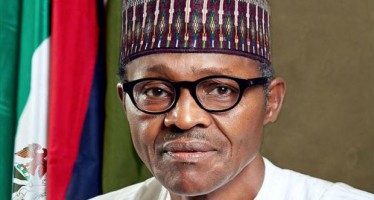Partnering to Support Uganda’s Roads PPP Program

WBG
The national road transport network is the most dominant mode of transport in Uganda. Over 90% of passenger and freight traffic travels through the network. It also provides vital transport corridors to the land-locked countries of Rwanda, Burundi, Eastern Democratic Republic of Congo (DRC) and Southern Sudan to the Port of Mombasa in Kenya. Much of the country’s road network requires substantial development to meet current and forecast traffic demands to promote access and equal distribution of economic and social development across the country.
To meet the increased demands on the road network, the Government of Uganda is committed to fund a sizeable program of road works over a 5 year horizon. Public Private Partnership (PPP) arrangements are considered to meet the funding gap through the use of private sector capital. Since 2000, PPIAF has provided technical assistance to the government of Uganda (GOU) to create an environment that enables private investment in infrastructure. A series of three technical grants have supported the GOU to develop the PPP framework at the national level to identify a pipeline of PPPs and strengthen the institutions implementing one of the priority projects identified –the Kampala-Jinja expressway.

Outcomes: In 2010, the Ugandan Cabinet approved the PPP Policy and authorized the drafting of the PPP Bill by the First. WBG
PPIAF Support
In 2007, PPIAF funded a study to help GOU develop a comprehensive policy, legal and institutional framework for the development and implementation of PPPs for procuring and financing infrastructure projects and services. The study recommended the establishment of a PPP law and PPP unit. The grant also supported the development of a draft PPP Policy Outline in 2008.
In 2011, PPIAF provided follow-up support to identify and prioritize potential PPP projects. Ten priority projects were identified, including the Kampala-Jinja road, which is now under implementation with the International Finance Corporation (IFC) appointed as the transaction advisor.
In 2014, to support the institutional capacity building of the implementing agency, the Uganda National Roads Authority (UNRA), PPIAF approved a grant in partnership with the Trademark EA (TMEA) and IFC to support a tolling policy; develop an investment appraisal guidance tool as well as support the PPP implementation capacity of the UNRA. The support is focused on developing a tolling strategy that would provide revenue and strategic guidance to the GOU on transparency, fairness and stability in toll setting and collection as well as the establishment of key internal processes to identify, appraise, manage and implement projects throughout the PPP project cycle.
Parliamentary Counsel in the Ministry of Justice and Constitutional Affairs. The PPP Bill was passed in July of 2014.
The Bill seeks to govern the relationship between the government and the private party in PPPs and to provide guidelines and procedures for the development and implementation of PPP projects. One of its key objectives is the creation of a unit to oversee the implementation of PPPs. The priority PPP project pipeline/action plan was also adopted and identified the Kampala-Jinja expressway as a major potential project. In May 2014, IFC’s Advisory Services in PPPs signed an advisory agreement with the GOU, through the UNRA, to develop a 77 km Greenfield expressway between Kampala and Jinja.
You may have an interest in also reading…
KPMG Lower Gulf: Banking on ESG Risks in Future
ESG risks have the potential of negatively impacting banks’ assets, earning capacity, and sometimes their reputation, argues Abbas Basrai. Environmental,
Statement on World Bank’s $2.1 Billion Support to Nigeria
On Tuesday, July 21, 2015 the World Bank Group President Jim Kim held a meeting with Nigerian President Muhammadu Buhari
Otaviano Canuto, Center for Macroeconomics and Development: How to Heal the Brazilian Economy
If I were to encapsulate the current situation of the Brazilian economy in one sentence, I would say: “It is
















































































